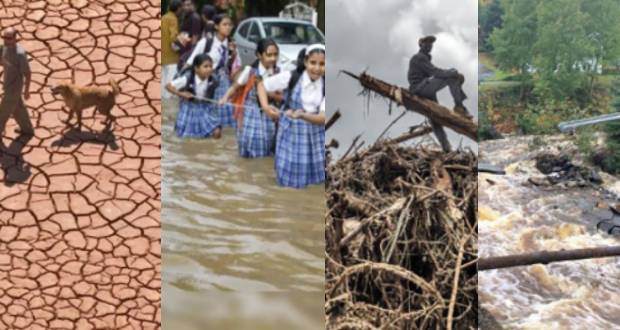Publicité
Focus: 2024 in retrospect
The scourge of climate change
Par
Partager cet article
Focus: 2024 in retrospect
The scourge of climate change

2024 marked the first year on record that global temperatures exceeded 1.5°C above pre-industrial levels. This milestone, set by the Paris Agreement, was surpassed as scientists declared it “virtually certain” that 2024 would be the warmest year on record. The record-breaking temperatures have raised concerns about the long-term impacts of climate change on ecosystems and human health. From devastating floods to scorching heatwaves, the toll of climate change has been felt across the globe have had profound impacts on communities around the world. Here’s some of the major climatic catastrophes that have defined this year.
Heatwaves across Southeast Asia
April 2024 saw unprecedented heatwaves sweep across the Philippines, Thailand, Bangladesh, and India. These extreme temperatures disrupted schooling, caused public health concerns, and led to recordbreaking temperatures in cities like Nandyala and Kadapa in Andhra Pradesh, India, where temperatures reached 46.3°C. The El Niño event exacerbated the situation, bringing hotter and drier conditions to the region.
Brazil’s devastating floods
The state of Rio Grande do Sul in Brazil experienced the most extensive climate-fueled catastrophe in its history. Between the end of April and the beginning of May, parts of the state recorded 500-700 millimeters of rain, which is between a third and almost half of the average annual rainfall. The floods caused widespread damage, displacing thousands of people and resulting in significant economic losses.
Hurricanes in Florida
Florida faced a series of major hurricanes in 2024, with Hurricane Milton being one of the most destructive. The hurricanes caused extensive damage to infrastructure, homes, and businesses, leading to billions of dollars in damages. The state’s emergency services were stretched to their limits as they worked to provide relief and support to affected communities.
Valencia’s floods
In Spain, Valencia experienced severe flooding that turned streets into rivers and caused significant damage to homes and businesses. The floods were a stark reminder of the increasing frequency and intensity of extreme weather events linked to climate change. The local government launched a major cleanup and recovery effort to help affected residents rebuild their lives.
Conclusion
The climatic catastrophes of 2024 have underscored the urgent need for global action to address climate change. As we move into 2025, it is crucial for governments, organizations, and individuals to work together to implement effective climate mitigation strategies and build resilience against future climatic events.
Publicité
Publicité
Les plus récents






